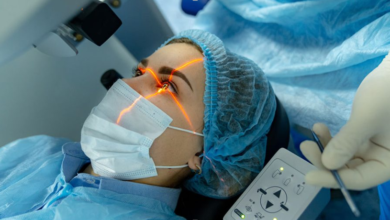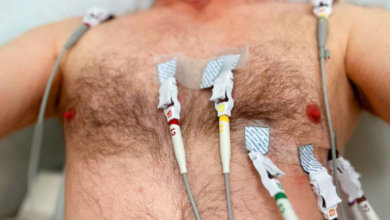Why Your Child Might Need a Pediatric Neurologist: Common Conditions Explained

A pediatric neurologist specializes in diagnosing and treating neurological disorders in children, from infancy through adolescence. They are trained to handle conditions involving the brain, spinal cord, nerves, and muscles. Unlike general neurologists, they have expertise in child development and how neurological issues affect growth, learning, and behavior. Parents are often referred to them when symptoms go beyond what a pediatrician can address.
When Developmental Delays Raise Concerns
Not every delay in speaking, walking, or social behavior signals a serious problem. However, persistent or multiple delays might warrant further evaluation. Pediatric neurologists assess whether a delay stems from a neurological issue such as cerebral palsy, genetic disorders, or brain malformations. Early intervention is key. The sooner these problems are identified, the more effective therapy and treatment will be in helping the child.
Seizures and Epilepsy in Children
Seizures in children can range from dramatic convulsions to brief moments of staring. While a single seizure doesn’t always mean epilepsy, recurring episodes often do. A pediatric neurologist conducts EEGs and brain imaging to pinpoint the cause and prescribe the right medication or lifestyle changes. Seizures in children may be linked to genetic factors, infections, or developmental issues.
Recognizing Signs of Cerebral Palsy
Cerebral palsy is a group of disorders that affect movement and posture. It typically appears in infancy or early childhood, often after a birth-related event or brain injury. Common signs include poor coordination, stiff muscles, or delays in sitting, crawling, or walking. A pediatric neurologist can confirm the diagnosis using neurological exams and scans, then recommend therapies such as physical therapy, occupational therapy, or speech support to help manage symptoms effectively.
Headaches and Migraines in Young Patients
Frequent headaches in children are often brushed off, but recurring pain, especially when accompanied by nausea or light sensitivity, may be signs of migraines. Pediatric neurologists help distinguish between tension headaches, cluster headaches, and migraines. They also explore potential triggers such as stress, diet, or sleep disturbances. Treatment might include medication, relaxation techniques, or dietary changes.
Behavioral Changes and Neurological Causes
Sudden mood swings, aggression, attention problems, or sleep disturbances can sometimes signal underlying neurological conditions. While such behaviors are common during growth spurts, persistent or extreme changes should be evaluated. Conditions like ADHD, anxiety disorders, and even certain brain abnormalities can manifest through behavior. Pediatric neurologists work alongside psychologists or developmental pediatricians to assess whether the root cause is neurological or emotional, ensuring your child receives the right support.
Autism Spectrum Disorders and Neurological Evaluation
Children on the autism spectrum may display differences in communication, social interaction, or repetitive behaviors. While autism is not solely a neurological disorder, pediatric neurologists play a key role in the diagnostic process. They help rule out other conditions that may mimic autism and may assist in coordinating care across multiple specialties. Early identification, followed by behavioral and speech therapies, often significantly improves outcomes for children diagnosed with autism spectrum disorders.
Neuromuscular Disorders
Neuromuscular disorders, such as muscular dystrophy or spinal muscular atrophy, affect the way muscles function. Early signs can include frequent falls, muscle weakness, or delayed walking. Pediatric neurologists use clinical assessments and genetic testing to diagnose these rare conditions.
Traumatic Brain Injury and Follow-up Care
Children who suffer head injuries, whether from falls, accidents, or sports, may experience lasting effects on memory, attention, or behavior. Even mild concussions can have delayed symptoms. Pediatric neurologists monitor cognitive and motor function, order brain scans, and guide rehabilitation plans. Ongoing follow-up is often needed to ensure the child fully recovers and regains lost skills.
How Early Diagnosis Can Improve Outcomes
Across all neurological conditions, early diagnosis can make a substantial difference. It allows for timely intervention, minimizes complications, and supports optimal development. Pediatric neurologists are trained to spot subtle signs that may go unnoticed by others. Whether it’s epilepsy, motor disorders, or developmental delays, recognizing the red flags early allows for proper care.
In recent years, Lucknow has become a prominent healthcare destination, especially for pediatric specialties. With the rise of super-specialty hospitals, trained experts, and modern diagnostic facilities, the city offers accessible and affordable care for children with complex neurological needs. If you’re looking for comprehensive, empathetic, and experienced care, the best pediatric neurologist in Lucknow can provide the guidance and support your child needs.





